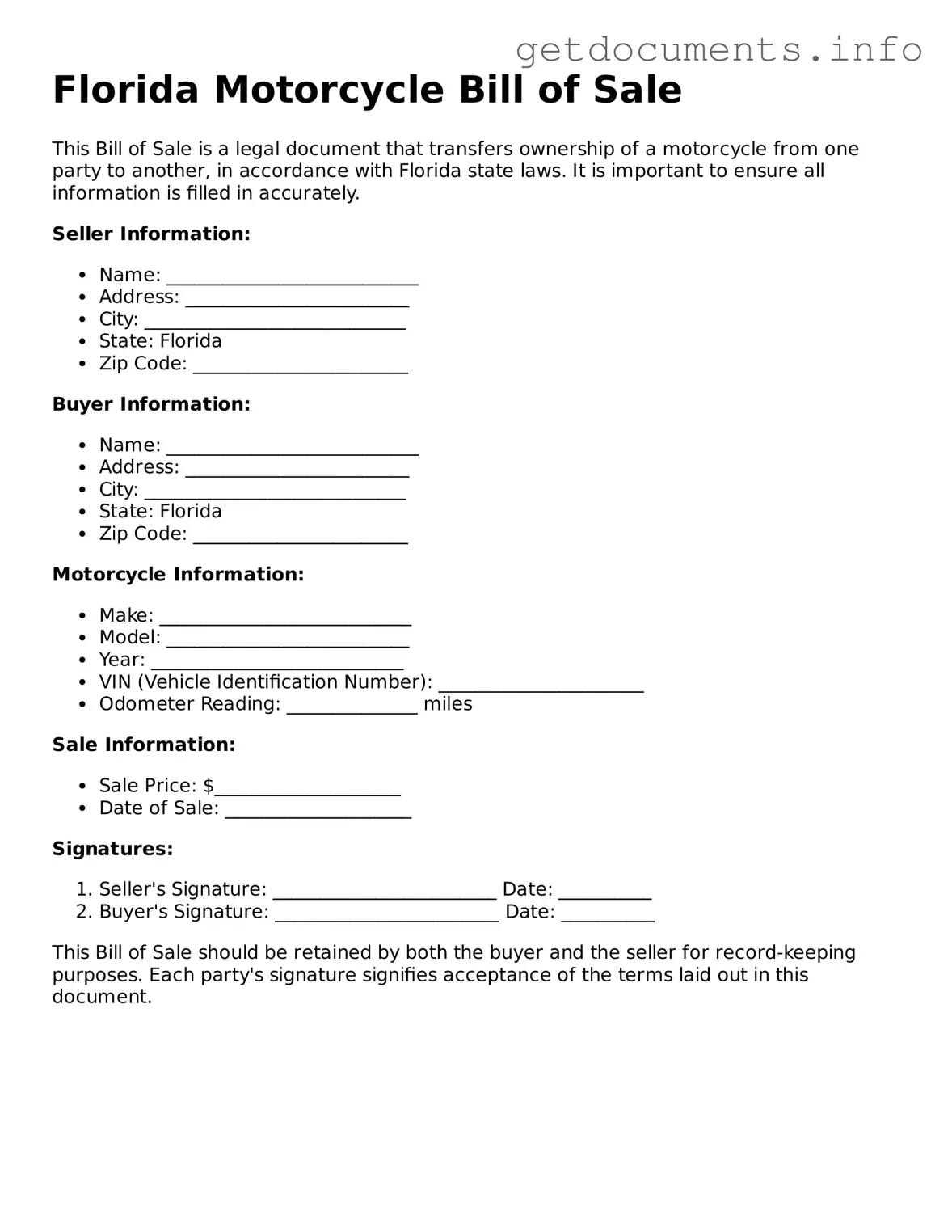Free Motorcycle Bill of Sale Template for Florida
The Florida Motorcycle Bill of Sale form is a legal document that records the sale and transfer of ownership of a motorcycle between a buyer and a seller. This form is essential for ensuring that both parties have a clear understanding of the transaction and for providing proof of ownership. To make the process smoother, consider filling out the form by clicking the button below.
Access Motorcycle Bill of Sale Editor

Free Motorcycle Bill of Sale Template for Florida
Access Motorcycle Bill of Sale Editor
Got places to be? Complete the form fast
Fill out Motorcycle Bill of Sale online and avoid printing or scanning.
Access Motorcycle Bill of Sale Editor
or
⇩ PDF File
